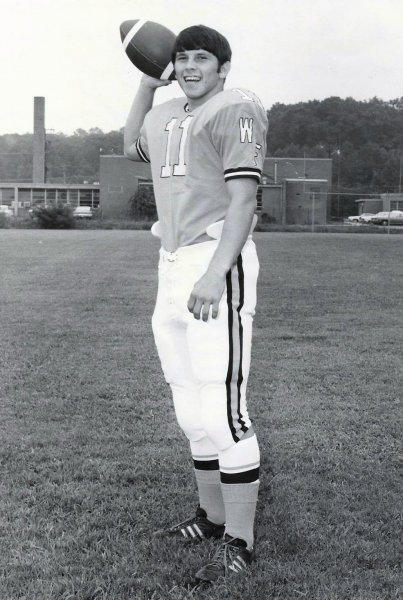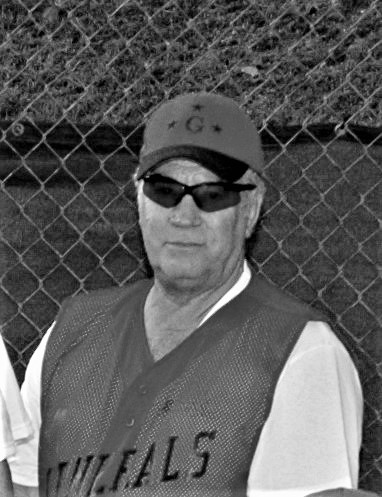
Muhammed Ali once said that “service to others is the rent you pay for your room here on earth”. If the champ is correct 2020 Fannin County Sports Hall of Fame inductee Windell Davis has a fully-paid long term lease on the finest accommodations in the county.
Personally, Windell was far from a superstar in his athletic endeavors. Because he was small, his parents would not allow him to try out for the football team at East Fannin High School until his junior year in 1958. By that time, he had grown to a whopping 135 pounds when he reported for his first football practice under Wildcat Coach and Fannin County Sports Hall of Fame member Babe Howell. Coach Howell assigned him the position of right guard on offense and linebacker when the opponents had the ball. He did not see much action until the night of October 31, 1958 when East Fannin met Adairsville for the Region 4C East championship on the Pepperell High School field just outside of Rome, Georgia.
The game was a scoreless defensive struggle until an Adairsville running back mishandled and fumbled a pitchout. As fate would have it, Windell Davis found himself Johnny on the spot and he scooped up the ball and headed down the sideline toward the Adairsville goal. He remembers Coach Howell exhorting him on as he raced goalward. Unfortunately, Windell did not hit pay dirt and was tackled inside the Adairsville 20-yard line. His return set the Wildcats up nicely, however, and William Lynn Harris scooted into the endzone on the next play for the only touchdown of the game as the Wildcats chalked up a hard earned 6-0 victory and the region championship. The 1958 East Fannin squad ended the season with a record of 8 wins and 2 losses, the best record in the history of Fannin County until East and West Fannin High schools were consolidated into the new Fannin County High School in 1976.
Windell graduated from East Fannin in the spring of 1960 and a few years later, in 1963, received an invitation to spend some time with his Uncle Sam. He was trained as a combat medic and, fortunately, was not called to serve in the escalating conflict in Vietnam. Windell was honorably discharged in 1965 after spending much of his military duty in Hawaii.
Between 1966 and 1968, three major events occurred that shaped the life of Windell Davis for the next 50+ years. First, he married Inez Mull Davis in December, 1966. The two are still together some 53 years later. The union has produced five successful children, Danette, Denise, Vincent, Vernon and Jeffrey.
Windell, Inez and Barney, their Boston Terrier, make their home in Mineral Bluff in the house that has been home for the Davis family for more than 40 years. Windell is seen on a regular basis at Recreation League games and seldom misses a Fannin County High School athletic contest in any sport. He continues his lifelong support of athletics in the county that he loves by doing ‘what he can, when he can’.
The second life shaping event for Windell came to pass in 1968 when he was persuaded to run for Fannin County Tax Commissioner. He won the election over a crowded field of contenders and continued to serve the county in the same capacity for a total of 34 years and 4 months. He was elected for a total of nine four-year terms, serving longer than any other elected official to date in Fannin County. He retired from public service in 2003 on his 62nd birthday. Windell is understandably very proud of his record of public service and for the confidence that the voting public showed for his abilities and performance over a long period of time.
Finally, Windell Davis began a lifelong period of service to athletics in Fannin County in the spring of 1968 when he volunteered to coach the Morganton Giants team of 13 to 15-year-old boys in the area Dixie Youth Baseball League. He continued to coach the Giants and other youth league baseball teams for some 20 years.
In the late 1980s and early to mid-1990s, Windell became the coach of the 10 and under girls basketball team in the Fannin County Recreation League. He reached the pinnacle of his coaching career in 1995-96 when he and Susan Roberson coached the 10U team that won the Georgia Parks and Recreation Department state championship in their age division. His team finished as state runners-up the following season.
In addition to coaching youngsters, Windell Davis has contributed to the athletic endeavors in Fannin County in a myriad of other ways. He has been active in organizing, fund raising, transporting young athletes to and from practice and games and any other functions that he has been called upon to perform. He even volunteered his time to write a sports column about East Fannin sports in an effort to provide recognition for young athletes. One observer says that Windell simply does ‘what he can, when he can’.
When Windell was 57 years old, he was invited to play for the Fannin Generals, a senior softball team that competed in the Blairsville Recreational Softball League. He played for the Generals for a number of years and coached the team from 2000 until 2008. During his time playing for the Generals, Windell learned that former New York Yankees pitcher Bob Turley had purchased a home in the Blue Ridge Lake area. Turley pitched for the Yankees for eight years and won the Cy Young Award in 1958. Windell contacted Turley and persuaded him to don a Generals uniform and pitch a couple of innings in a game.
Windell Davis is a charter member of the Fannin County Sports Hall of Fame and continues to play an important role in the organization’s activities. His hard work, wise input on issues facing the Hall and reputation in the community are invaluable to the group.























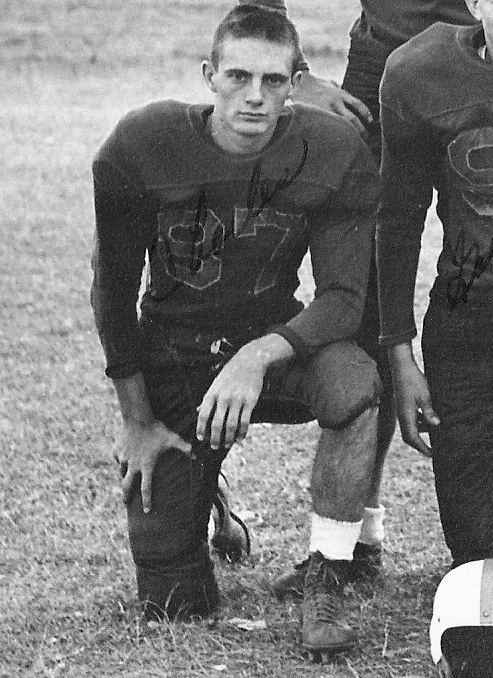



















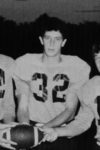 Randall Beavers joins his brother Ron as a member of the 2019 Fannin County Sports Hall of Fame induction class. Randall played football and basketball at East Fannin High School from 1967 through 1971.
Randall Beavers joins his brother Ron as a member of the 2019 Fannin County Sports Hall of Fame induction class. Randall played football and basketball at East Fannin High School from 1967 through 1971.




















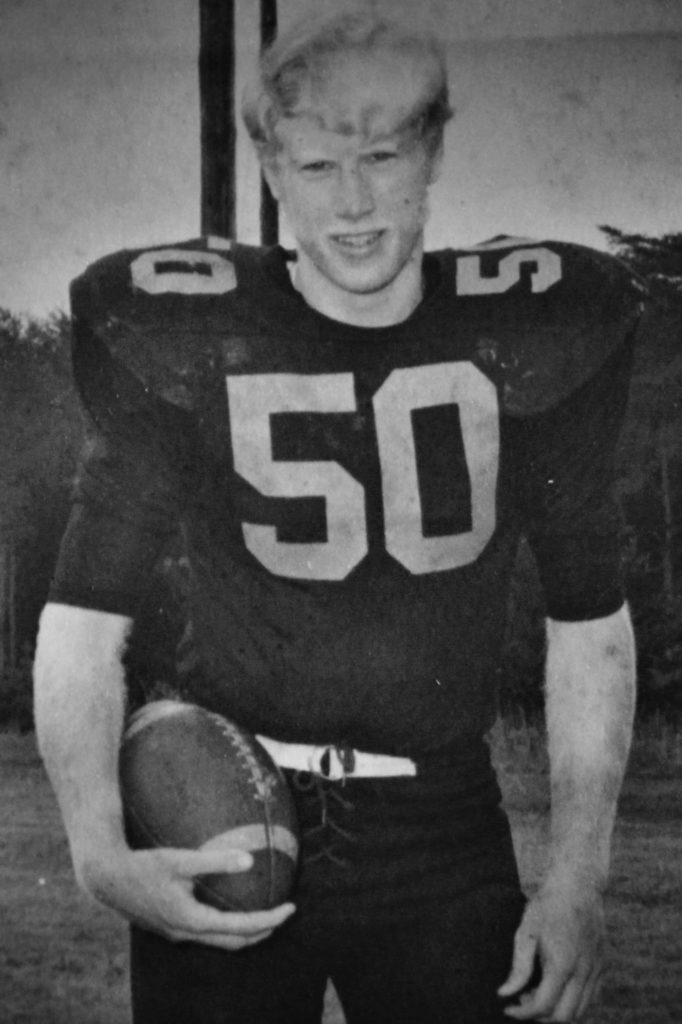 Ronnie Beavers played every sport available to him in each of his four years at East Fannin High School from the fall of 1969 until his graduation in the spring of 1973. He has continued his participation in athletics beyond high school and continues to play softball at an advanced level of competition. Ronnie’s body of work in athletics has earned him a ticket for admission to the Fannin County Sports Hall of Fame Class of 2019.
Ronnie Beavers played every sport available to him in each of his four years at East Fannin High School from the fall of 1969 until his graduation in the spring of 1973. He has continued his participation in athletics beyond high school and continues to play softball at an advanced level of competition. Ronnie’s body of work in athletics has earned him a ticket for admission to the Fannin County Sports Hall of Fame Class of 2019.
























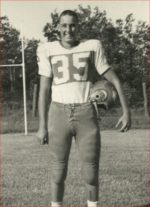 As a youngster growing up in the friendly confines of Epworth, Georgia, Ron Hartness marked the passage of time not so much as summer followed by fall followed by winter followed by spring but by the athletic uniform that he donned at various points during the year. Ron was a stellar all-around athlete and has been elected to the Fannin County Sports Hall of Fame Induction Class of 2019.
As a youngster growing up in the friendly confines of Epworth, Georgia, Ron Hartness marked the passage of time not so much as summer followed by fall followed by winter followed by spring but by the athletic uniform that he donned at various points during the year. Ron was a stellar all-around athlete and has been elected to the Fannin County Sports Hall of Fame Induction Class of 2019.





































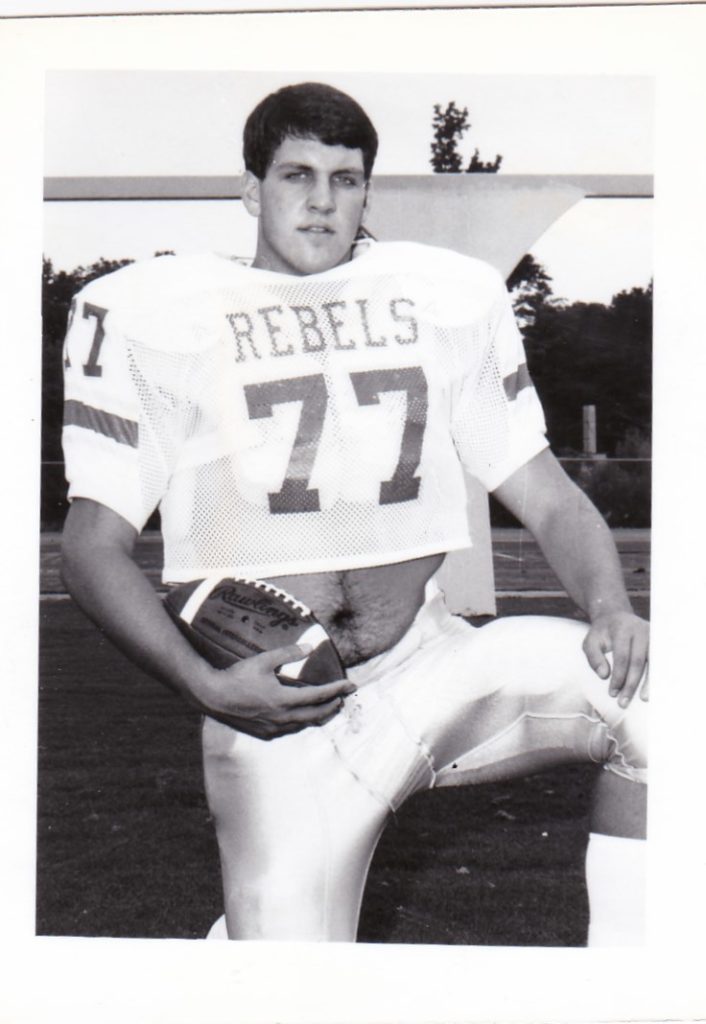 Between 1985 and 1993 Tim Jabaley played the game of football as an offensive lineman first at Fannin County High School and then at the University of Tennessee at Chattanooga. His proficiency at that craft has been recognized by the Fannin County Sports Hall of Fame voters who have elected him to the induction class of 2018. Tim also played in the defensive line at Fannin County but is best remembered for his performances on the offensive side of the line of scrimmage.
Between 1985 and 1993 Tim Jabaley played the game of football as an offensive lineman first at Fannin County High School and then at the University of Tennessee at Chattanooga. His proficiency at that craft has been recognized by the Fannin County Sports Hall of Fame voters who have elected him to the induction class of 2018. Tim also played in the defensive line at Fannin County but is best remembered for his performances on the offensive side of the line of scrimmage.




























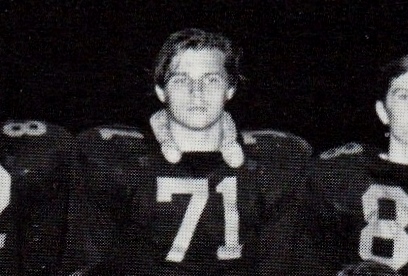 In recognition of his outstanding football career at East Fannin High School from 1968-1972, Keith Dockery has been elected to the Fannin County Sports Hall of Fame.
In recognition of his outstanding football career at East Fannin High School from 1968-1972, Keith Dockery has been elected to the Fannin County Sports Hall of Fame.



























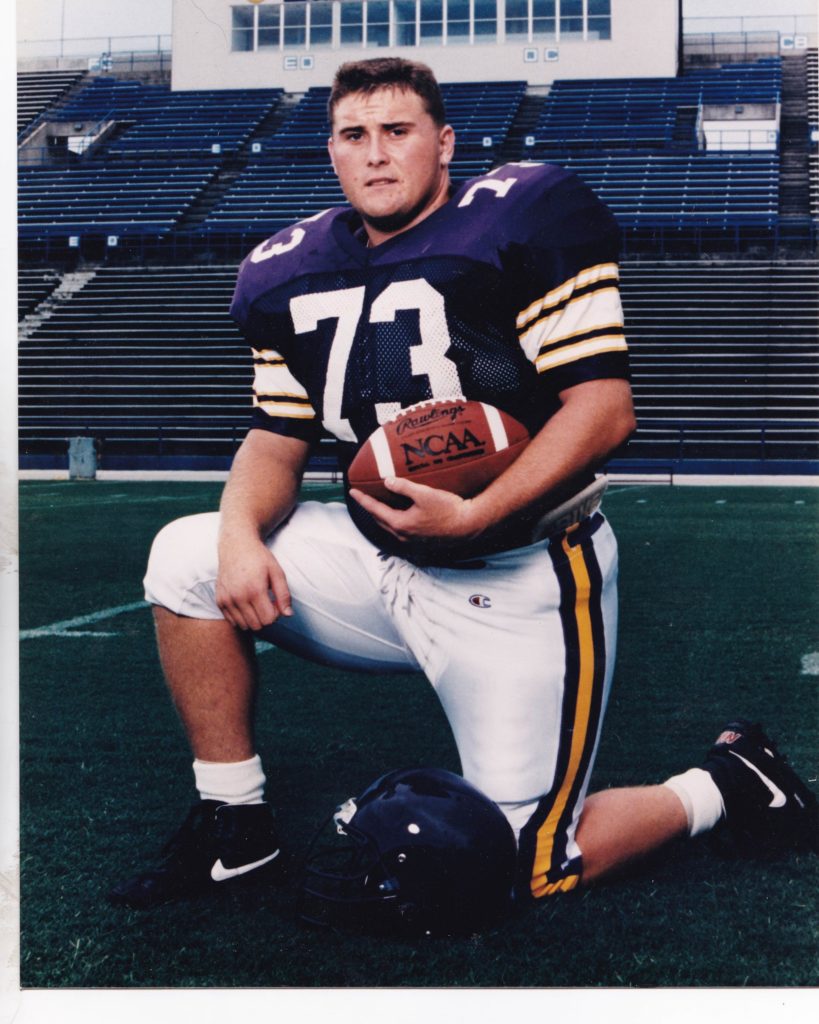 Mineral Bluff native Chris Williams donned a football uniform for the first time as a member the East Fannin Junior High School Wildcats in the fall of 1983. It was the first step in a 19-year journey during which the game of football would be an important part of his life, first as a player and then as a coach. His resume of outstanding gridiron accomplishments has earned him a place in the Fannin County Sports Hall of Fame, class of 2017.
Mineral Bluff native Chris Williams donned a football uniform for the first time as a member the East Fannin Junior High School Wildcats in the fall of 1983. It was the first step in a 19-year journey during which the game of football would be an important part of his life, first as a player and then as a coach. His resume of outstanding gridiron accomplishments has earned him a place in the Fannin County Sports Hall of Fame, class of 2017.






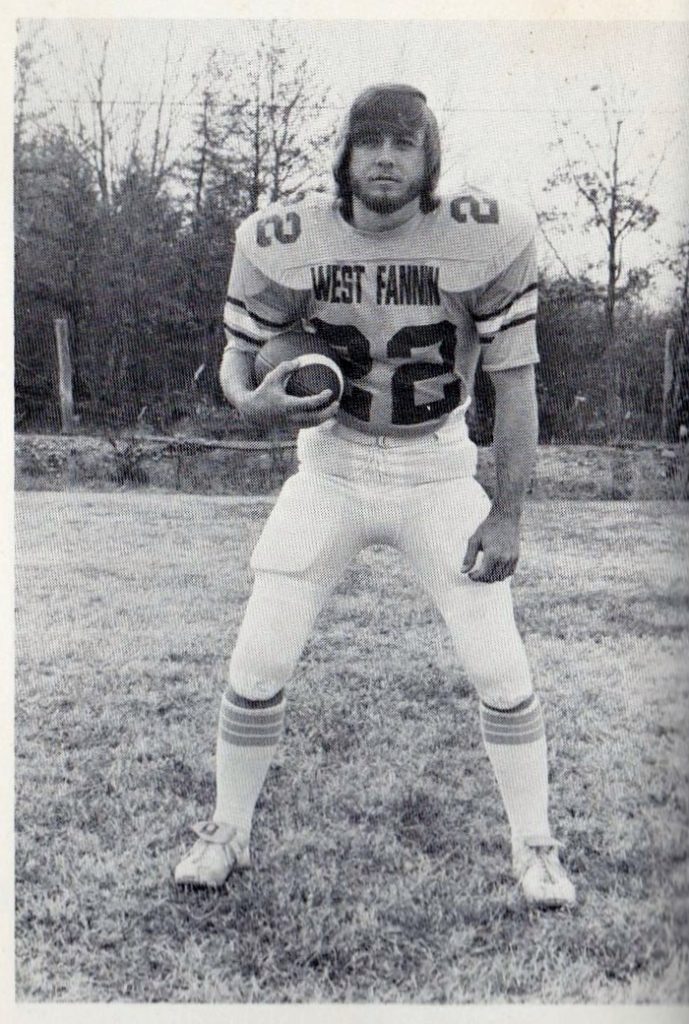 West Fannin High School had no bigger rival in athletics than the Bobcats of Gilmer County. Between 1956 and 1975, the last season of football competition at West Fannin, the two teams met every season. The series ended with 10 wins for West Fannin and 10 wins for Gilmer County. Most of the games were rough, tough rockem’ sockem’ affairs, but on the night of Saturday, September 14, 1974, Scott Burger carried his Yellow Jackets teammates to a 31-0 victory at Gilmer County in one of the most amazing performances in the gridiron history of Fannin County. Burger’s performance in that game and many others has resulted in his election to the Fannin County Sports Hall of Fame.
West Fannin High School had no bigger rival in athletics than the Bobcats of Gilmer County. Between 1956 and 1975, the last season of football competition at West Fannin, the two teams met every season. The series ended with 10 wins for West Fannin and 10 wins for Gilmer County. Most of the games were rough, tough rockem’ sockem’ affairs, but on the night of Saturday, September 14, 1974, Scott Burger carried his Yellow Jackets teammates to a 31-0 victory at Gilmer County in one of the most amazing performances in the gridiron history of Fannin County. Burger’s performance in that game and many others has resulted in his election to the Fannin County Sports Hall of Fame.






















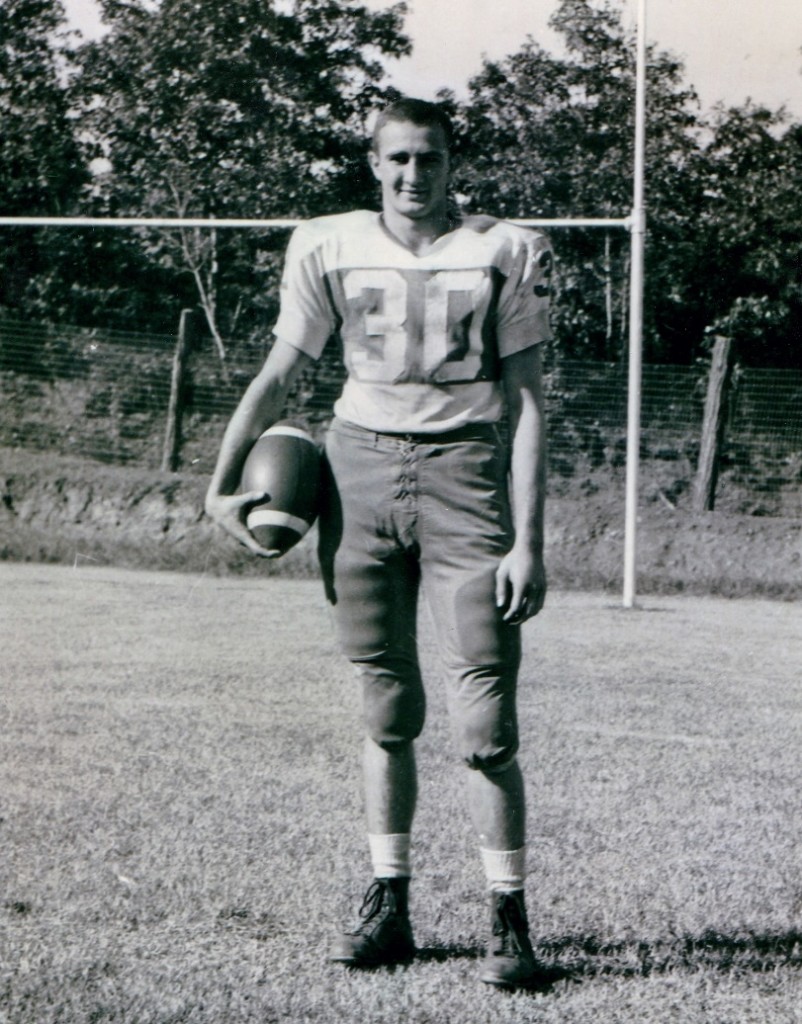





























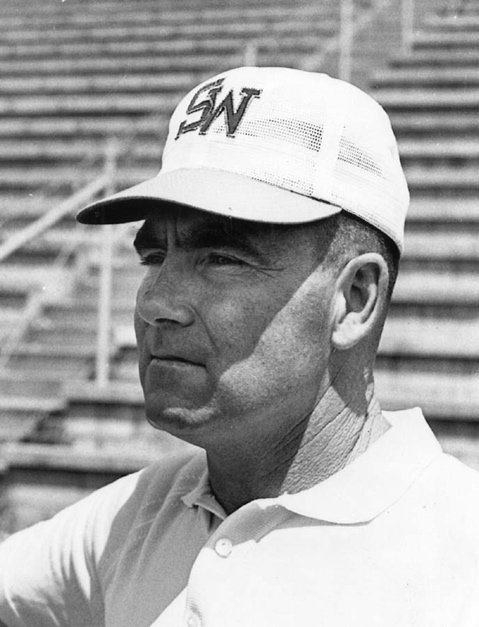

























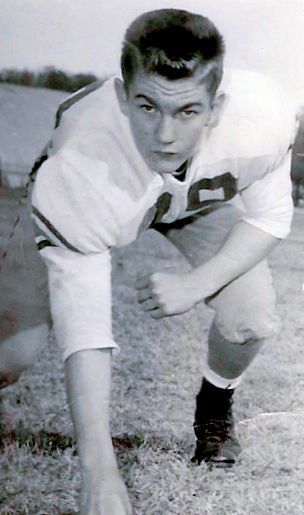




















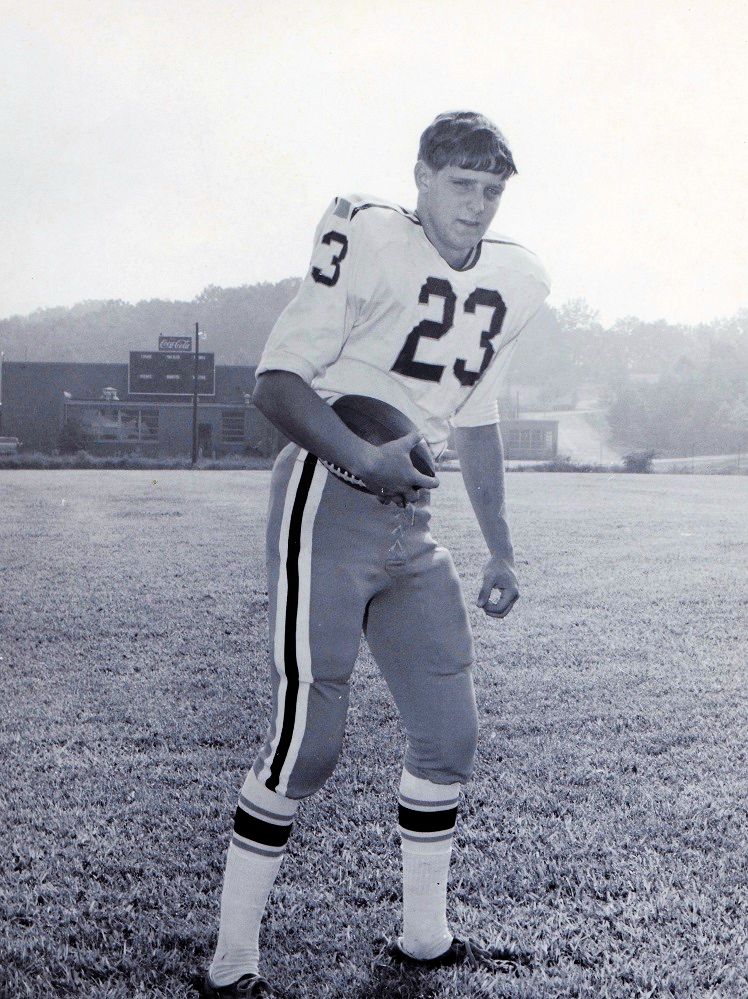



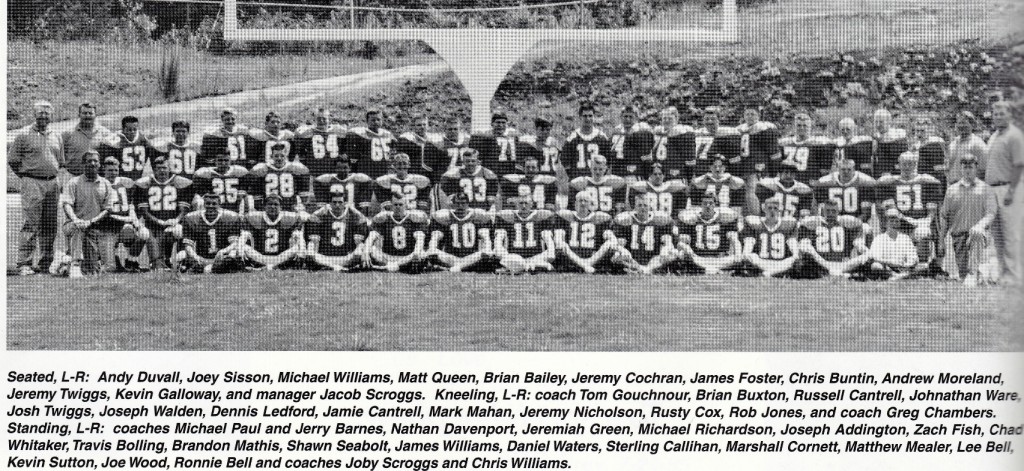





















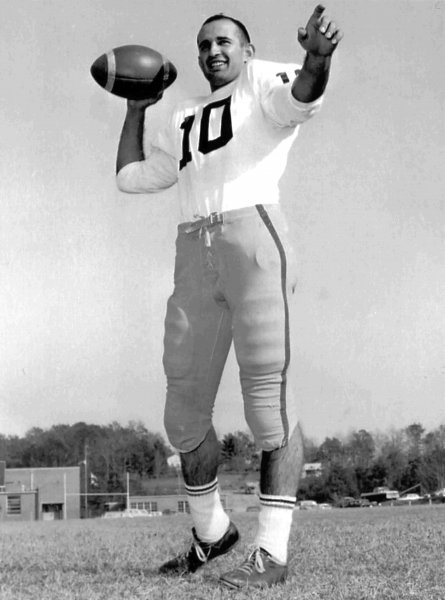





































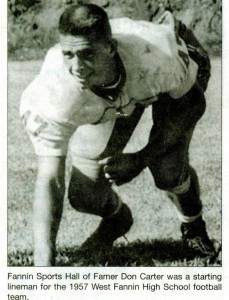











































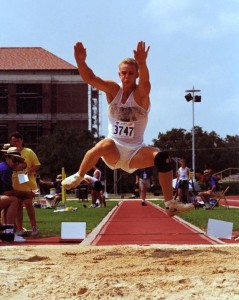








































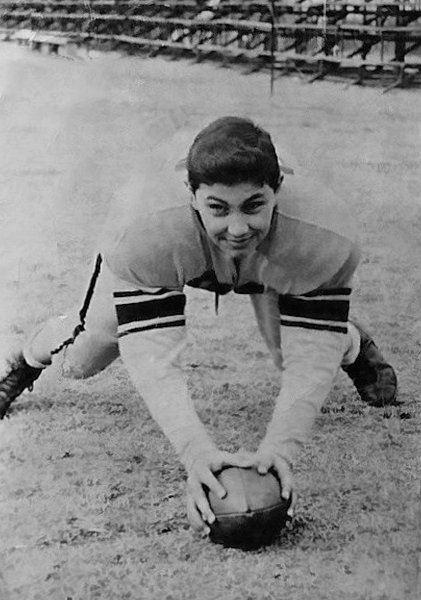 Ron Jabaley
Ron Jabaley









































